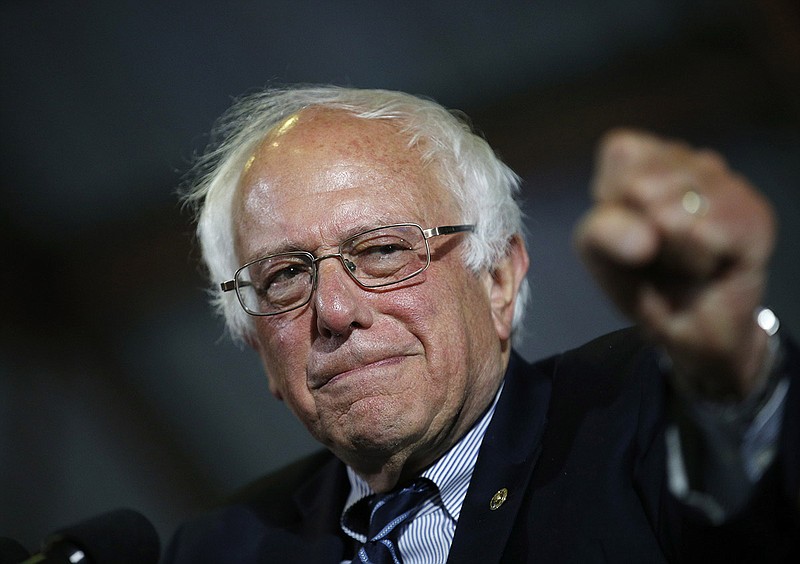If you haven't seen or heard the acronym M4A, you will.
It stands for Medicare-for-all, and it's the way far-left Democrats want the wider public to think about universal health care. But outside of Sen. Bernie Sanders, I-Vt., and occasional fringe candidates who want to be referred to as Social Democrats, universal health care is a losing proposition.
But by using the Medicare name, a program that's been around more than 50 years and is practically as sacrosanct as Social Security, universal health care supporters want the public to believe a simple tweak in Medicare could provide universal health care.
It's not that easy. Far from it.
As with the Affordable Care Act, Democrats who support the Medicare-for-all proposal will say anything to get wider acceptance. Andrew Gillum, a Democratic candidate to be the governor of Florida, recently went that route in a primary debate.
"We know that Medicaid expansion and Medicare-for-all [will] actually save this state and this nation $2 trillion if it were fully implemented," he said.
The $2 trillion cost-savings figure comes from a report on the 10-year impact of Sanders' Medicare-for-all plan written for the Mercatus Center at George Mason University by Charles Blahous, a former economic adviser to President George W. Bush and a former public trustee for Social Security and Medicare.
If an adviser to a Republican president who later served as a trustee for two such trusted programs said that, he must be onto something.
He was but not what Gillum had in mind.
In the report, Blahous tested Sanders' idea that medical providers - doctors, hospitals, drug companies and others - would receive a 40 percent cut in payments from the rates currently being paid by private health insurance. That would, he said, reduce the country's health expenditures by $2 trillion from 2022 to 2031.
However, in the fourth sentence of the report's abstract, he said, "It is likely that the actual cost of M4A would be substantially greater than these estimates, which assume significant administrative and drug cost savings under the plan, and also assume that healthcare providers operating under M4A will be reimbursed at [the 40 percent reduced rates]."
Meanwhile, demand would increase about 11 percent per year, Blahous estimated.
The cost of the plan over 10 years, he said, would be $32.6 trillion with the cuts and nearly $40 trillion without them. Sanders pegged his yearly cost estimate - with the inclusion of new taxes on employers and an income-based premium - at a cool $1.38 trillion, or $13.8 trillion over 10 years.
Blahous told The Washington Post Fact Checker his study makes clear that "additional costs arising from higher demand are substantially higher than the potential administrative efficiencies of going to a centralized national health insurance system. So whenever proponents argue that eliminating private sector insurance profits and overhead would enable us to cover more people for less money, that conflicts with the findings of the study."
Where have we heard that before - "cover more people for less money"? The Affordable Care Act, of course. We and many others knew before it was implemented it could not do that, and in fact it didn't.
The Fact Checker notes it's not the first time cuts for medical providers and insurance companies have been suggested. The 1997 balanced-budget agreement between President Bill Clinton and the Republican Congress included medical provider cuts of 21 percent that would be deferred for 17 years, but the deal President Barack Obama struck with the Republican Congress in 2015 eliminated them. And the tax that was to be imposed on "Cadillac" health insurance plans under the Affordable Care Act was pushed to 2020, then, 2022, and now legislation seeks to eliminate it.
The Gillum campaign seemed unconcerned when The Washington Post Fact Checker shared with it facts in the full Blahous report. Instead, it pretended it had never heard them.
"[He is] a proud supporter of Medicare-for-All and this study shows the potential for significant savings," communications director Geoff Burgan said. "It would be a strong improvement over the Republicans' attempts to destroy our current system and rip health care away from people."
According to the Real Clear Politics average, Gillum is currently running fourth among Democratic primary candidates in the Aug. 28 election.
Last Tuesday, Democratic candidates for governor and the U.S. House in Michigan and Missouri, respectively, who held Medicare-for-all views similar to the Florida candidate, were soundly thrashed.
Yet, Democrats persist in trying to prove points and sway public debate without giving voters the full story. Even the Fact Checker in The Washington Post, hardly a bastion of Republican support, couldn't help itself.
"All too often," it wrote in giving the Medicare-for-all savings Three Pinocchios (out of a possible four, signifying "mostly false), "politicians mischaracterize conclusions that are contained in academic or think tank studies. At the Fact Checker, we rely heavily on how a study's author says the data should be presented. In this case, it's clear that Blahous bent over backward to accept Sanders's assumptions, only to find they did not add up. Democrats cannot seize on one cherry-picked fact without acknowledging the broader implications of Blahous's research."
